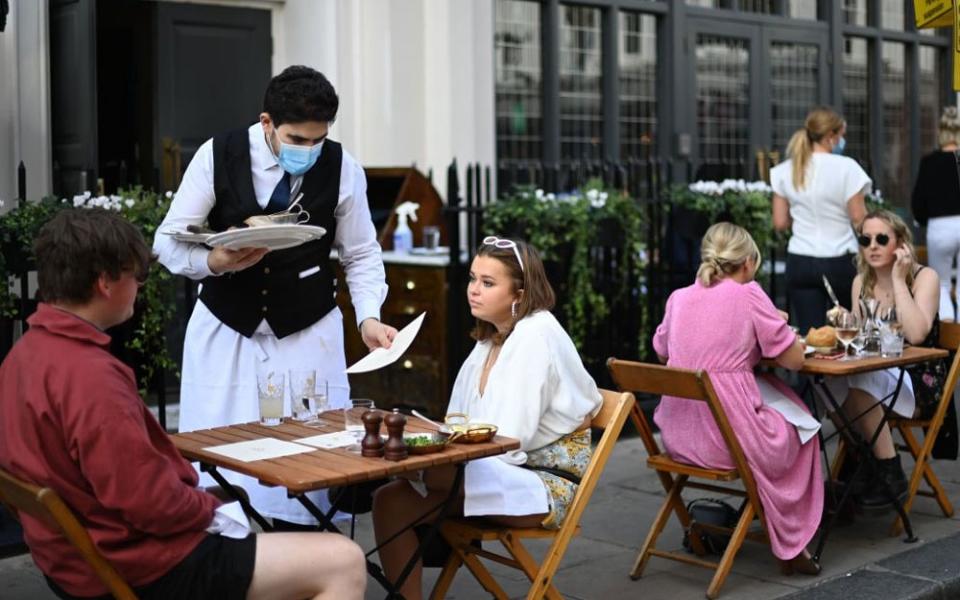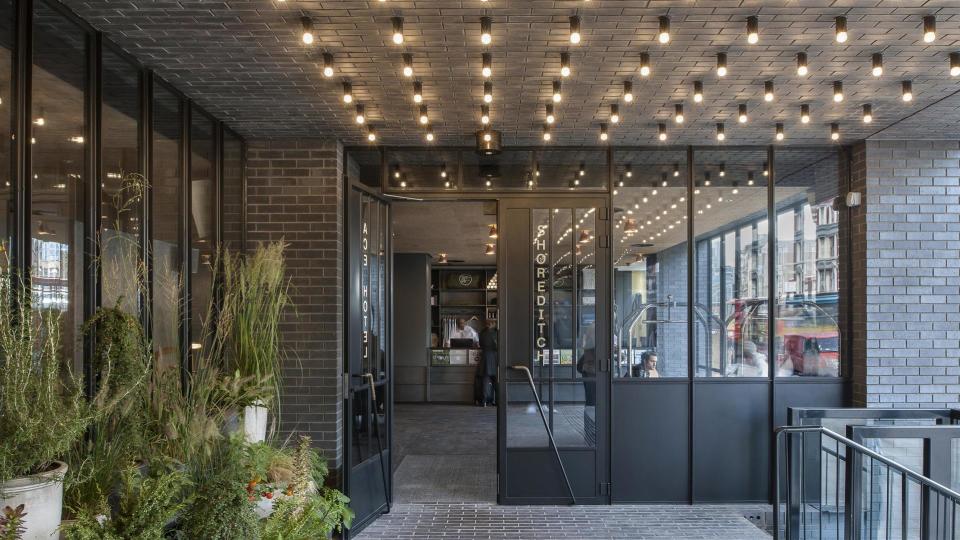‘Does the virus only come out after 10pm?’ – London’s top hotels and restaurants react to the new curfew rules

The ailing hospitality industry has been pummelled once again by the Government's announcement that all pubs, bars and restaurants in England must close at 10pm from Thursday. Prime Minister Boris Johnson said that the rule could be in place for up to six months. Venues found flouting the curfew may be fined up to £10,000 or forced to close.
After the nightmare of months of forced closure, followed by costly capacity limits – only slightly abated by summer’s Eat Out to Help Out scheme – this is the news hoteliers and restaurants were dreading.
Stuart Proctor, manager of The Stafford Collection, which includes London’s grand Stafford hotel and Sicilian restaurant Norma, is “frustrated, angry and concerned” about the new rules. First, there are the practical concerns of cancelling bookings and slicing revenue.
He said: “Within the Stafford Collection, 19 per cent of all reservations are made for dinner post 9pm, not including walk-ins and hotel guests in the bar. This is a huge chunk of business which will now disappear for no good reason – does the virus only come out after 10pm?”
“As an industry, we had just started to claw our way back from a catastrophic start to 2020, but this will be the nail in the coffin for so many in the hospitality and tourism sector.”

• Why city centres and the UK economy need international tourism again
Many are now scrambling to get things in order before Thursday. Jack Stein, Chef Director of the Rick Stein Group, who operates a seafood restaurant in Barnes plus a mini-empire in Cornwall said: “We are going to have to contact more than 900 customers who have reservations in our pub and restaurants to rearrange their bookings, which means disappointment for some, many cancellations and more lost revenue.”
Jane Pendlebury, Chief Executive of HOSPA (the Hospitality Professionals Association), sees the move as another huge blow. She explained: "To the casual observer, it may seem that closing at 10pm as opposed to 11pm won’t offer much impact. But hospitality businesses are genuinely teetering on the brink. There’s no room at all for any further loss of income.”
“That last round at the bar, or night caps following a meal may offer as little as £20 a night to a venue’s takings – but that can be the difference between someone keeping their job or losing it. Multiplying that across several tables or throughout a bar, helps to highlight the potential impact on revenue.”
She also emphasised the psychological impact the new rules might have on customers. “There’s a knock-on effect outside of the restaurant or bar itself. People are going to review potential hotel stays in light of it. The term ‘curfew’ sounds like heavy-handed, forbidding wording – something that’s no doubt deliberate – but it almost implies people need to be in bed by 10pm, thereby casting a different light on all sorts of elements of the hospitality experience.”

• The best hotels in central London
Plainly, it is difficult to see how an industry that is based around indulgence and relaxation will emerge unscathed by restrictions that limit freedoms and arguably increase fear.
Many in the sector have been left reeling by the chaotic nature of the Government’s coronavirus policy, which has been characterised by mixed messages and U-turns. Chef Tom Brown, whose hit Hackney Wick restaurant Cornerstone has weathered the storm well, said the new restrictions are a “cheap slap in the face.”
He elaborated: “One minute they are telling people to visit us in hordes, the next we are not to be trusted past 10pm. The message needs to be clear: if it’s unsafe for people to eat out then have the guts to close us down and support us accordingly.”
For Stuart Proctor, it’s “baffling that the Government would spend £522m on the brilliant Eat Out To Help Out scheme last month, encouraging the British public to eat out as much as possible, and now we are back to being enemy number one. Thanks to the scheme, we've taken staff off furlough to cope with the demand of customers – what do we do with them now?”

There are also huge questions surrounding the effectiveness of the measure. In an effort to adhere to Government guidelines and lure back nervous customers, many venues have created what could be described – to use Number 10’s lingo – as relatively ‘Covid-secure’ set-ups. Increased distancing between tables, propped open doors and windows and staff in masks have become commonplace. Crucially, restaurants are well placed to ensure that the oft-criticised track and trace system actually works, having customer details stored on file.
Jane Pendlebury said: “Of course, as an industry we appreciate the need for preventative measures, but, at present, they really are crippling. Recent statistics suggest that the hospitality sector is responsible for very few Covid cases – as little as five per cent – so it seems somewhat unjust that we're being targeted with yet more restrictions.”
Indeed, some evidence has emerged that restaurants aren’t virus-spreading hotspots. Data published by Public Health England last Friday suggested that, at the start of September, restaurants and fast food outlets were responsible for just 4.6 per cent of infections, as opposed to 43 per cent in care homes and 26.4 per cent in educational settings.
New rules announced at the same time as the curfew will make face coverings mandatory in restaurants for staff and customers unless seated at their tables, which could lessen the incidence further.

Surprisingly, while restaurants are being slapped with restrictions, there has been no further nationwide action on inter-household mixing since the ‘Rule-of-Six.’
While it doesn’t quite rival New York for round-the-clock action, London has become a fully fledged late-night city in recent years and a restaurant capital of the world, with top hotel groups clamouring to secure space in the centre of town. Already hit by high-profile coronavirus-related closures such as Ace Hotel in Shoreditch and Michelin-starred restaurant The Ledbury, it’s difficult to see how many of its much-loved hospitality venues will survive this latest blow.
Sir Rocco Forte, who owns Mayfair’s Brown’s Hotel, thinks the new restrictions will be disastrous for his hotel and the capital. He says: “The room side [of the business] is already very poor because there’s not much international travel, and essentially what business we’re doing is in the bars and restaurants. These new restrictions make it even more difficult to operate. We’re now having to consider closing down again.”
“London is the centre of activity and entertainment – that’s it’s attraction. If we stop all that, why should people come?”
Nowhere will the measure be more intensely felt than central London’s Soho, where in normal times it's possible to find a party every night. Gearoid Devaney and Xavier Rousset’s brand new wine bar The Black Book, tucked beneath buzzy Frith Street, has a coveted late-night licence, though “it won’t mean anything after Thursday”. They have now had to make the difficult decision to let go 50 per cent of their staff.
Their message to the Government is clear: “Stop blaming our industry for poor and naive political decisions, send optimistic messages and support us in the long run. All these measures will affect our industry for years to come, not just a few months.”
Some hoteliers are a little more optimistic. After six months of shape-shifting, what’s one more contortion? Jonathan Raggett, Managing Director of the Red Carnation group, who operate six hotels in London says: “Since we reopened our hotels, we have been blown away by the reaction from many of our regular customers and their ability to adapt to the situation and still have a great time.”
He adds: “Our advice – come an hour earlier to make up for leaving an hour earlier than you hoped!”
Whether hotel- and restaurant-goers will get on board with the early-bird lifestyle remains to be seen, but with some experiencing increased flexibility through working from home, 6pm dinners could well take off. Stranger things have happened this year.

